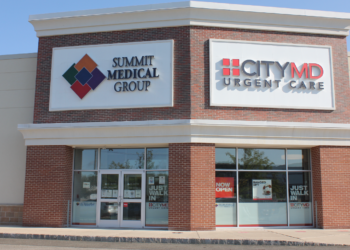
Stopping in storm-ravaged Westchester, Gov. David Paterson listened as union leaders and Coca-Cola and Pepsi bottlers privately made their case against his proposed excise tax on sugared beverages. He publicly agreed the so-called soda tax could cut into profits and jobs in the industry. But unless someone has another $1-billion revenue source for the state, the tax stays in his budget plan, he said.
The State Legislature, though, might not approve the new tax, which would increase the retail price of soft drinks by about 1 cent per ounce and would raise an estimated $465 million in revenue this year and $1 billion in 2011. Assembly Speaker Sheldon Silver recently was quoted in the Albany Times Union as saying there does not seem to be much support for the tax among legislators, although the proposal could “get a life of its own” as “crunch time,” the state”™s April 1 budget adoption deadline, looms.
“We”™re for it; the Legislature is debating,” Paterson said of the soda tax, which is expected to reduce consumption of sugar-sweetened drinks by 15 percent and reduce obesity rates for New Yorkers and obesity-related health care costs in the state, estimated by the state comptroller at $7.6 billion annually for adult patients.
The governor said legislators, with no plan yet in place to close the state”™s $9.2 billion deficit, “are going to have to make the tough decisions.”
In a wide-ranging question-and-answer session at the Theodore Young Community Center in Greenburgh, the governor heard an educator, health care official, state park volunteer, preservationist, high school student and union officials state their concerns about the impact of his proposed spending cuts and new fees on their areas of the economy. He calmly defended his choices in his executive budget.
“I”™m trying to be as fair and as proportional in reductions as I can possibly be,” he said. He noted that over two years in office, he will have trimmed more than $40 billion from the state deficit after the 2010 budget is adopted.
With a state deficit that has ballooned from Paterson”™s projected $7.4 billion in January to $9.2 billion in March, “Everyone says we have to have cuts, but they don”™t want you to cut them,” he said. “Let”™s get used to it ”“ we”™re all going to suffer.”
“They call it a recession,” Paterson said. “It”™s starting to feel like something else. I don”™t think the public really understands how dire the circumstances are for state budgets”¦We”™re in a real mess. We are going to have to make sacrifices we never thought we would make.”
Â
The governor said New York”™s revenue shortfall was made worse when Wall Street firms paid out 2009 bonuses in stocks rather than cash, “which we can”™t tax.” The state this year lost nearly $750 million because of those bonus restructurings, he said.
Â
“Many of the decisions I”™ve made to close this budget are bad decisions,” Paterson said. “They are bad decisions at any other time in history.”
With blue-uniformed Pepsi drivers and workers in the audience, members of Teamsters Local 812 in Scarsdale, the governor cited the soda tax as one of those decisions.
Coca-Cola and PepsiCo Inc. “actually have helped” in diabetes prevention efforts and have lower sugar content in their beverages, he said. The tax, he said, “will limit their ability to make profits, which could threaten jobs” at two of the state”™s large employers. But the tax will generate $1 billion in revenue and will reduce the state”™s health care spending, he said.
“I recognize the turmoil,” said Paterson, “but I”™m trying to tell you is we”™ve got to go back and find another billion dollars” if the soda tax is dropped.
Terry Ryan, executive vice president of Pepsi-Cola Bottling Co. of New York in the Bronx, was among the industry and union officials who met with Paterson before the town hall meeting.
Last year, the beverage industry in New York was hit with an expanded bottle deposit law. “That affected our volume,” he said. “This is the second year in a row of the soft-drink industry being hit, because they”™re the biggest target,” he said.
“It”™s really all about fairness and jobs,” he said. “We want to build more facilities, not take things away.”
Ryan said officials told the governor the soda tax could give New Jersey, which has no soda tax and a no-deposit, no-return policy on bottles, a greater competitive edge over New York bottlers. Cheaper beverages produced in New Jersey could be stocked in New York stores, the governor was told. “At the end of the day,” said Ryan, “it”™s kind of connecting the dots. If you lose jobs and close warehouses, what did you get out of it?”
Ryan said bottlers already are investing more in non-sugared products. “It”™s not as easy as putting a tax on sugar and overnight you”™re going to fix diabetes and obesity,” he said. “I think we need to sit down and talk about what are other ways we can do it.”



















